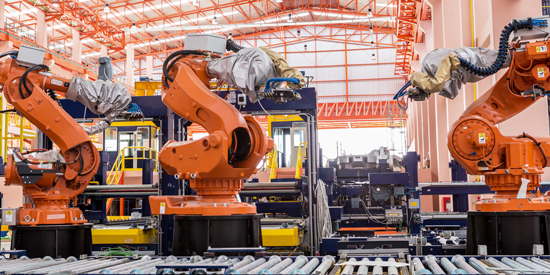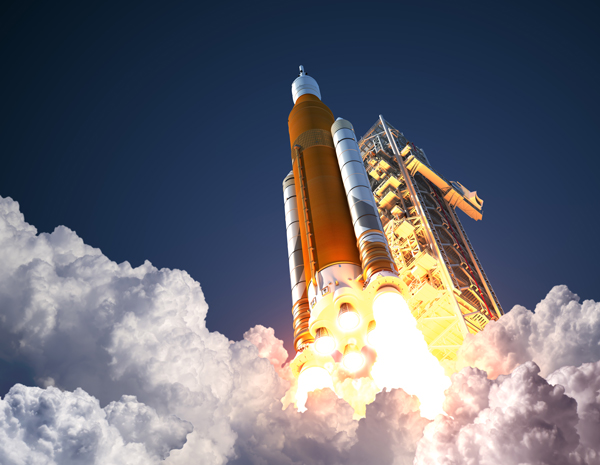Q&A on Saint Leo's New Bachelor's in Robotics & AI Degree Program
Learn about the innovative bachelor's in robotics and AI degree program offered by Saint Leo University starting in the fall of 2022.

Learn about the innovative bachelor's in robotics and AI degree program offered by Saint Leo University starting in the fall of 2022.

Robotics and artificial intelligence (AI) were once a fantasy hearkening back to pop culture phenomena like The Jetsons and 2001: A Space Odyssey. Now over two decades into the 21st century, these forms of technology are being used across multiple industries, and it's clear that their prevalence will only increase with time.
We recently caught up with Dr. Vyas Krishnan, an associate professor of computer science and chair of the computer science department at Saint Leo University, to get the scoop on a fascinating BS in robotics and AI degree program coming to Saint Leo.
A: The robotics field has been around for a long time. Going back to the 1960s and '70s, this field was certainly more experimental and based on research. With advancements in hardware in recent decades, it has become far more sophisticated.
Now we are at a point where AI and robotics are merging in numerous ways to adapt many environments within our society. We've seen explosive growth in several sectors like self-driving vehicles, manufacturing, medicine, fast food, and delivery services. Going forward, I think we'll see further advances in AI technology and its application to robots.
A: Robotics and AI aren't necessarily new to Saint Leo University. We already have an intro to AI course in our computer science degree curriculum. We've also offered several summer robotics camps for middle and high school students on campus led by Dr. Monika Kiss, a math professor, which have received a lot of interest.
In recent years, there had been inquiries from the university leadership team about starting a robotics degree program. We initially looked at offering more courses in our current computer science and software engineering degree programs or a minor. However, after conducting market research and gauging interest, we felt the time was right to launch a bachelor's degree program.
Here in the Tampa Bay area, we aren't aware of any other bachelor's programs specifically in this area, so we're proud to be a forerunner in that regard. In addition, we were awarded a $1 million grant from the governor's office to create a state-of-the-art AI lab on campus. We were very grateful for this significant contribution and we've made a lot of progress on our plans already.
A: This program will be offered starting in the fall of 2022 on ground at University Campus in Saint Leo, FL.
A: We are looking for students who have a technical mind and get excited by technology. Students exploring computer science, software engineering, or cybersecurity programs would be good candidates for this robotics and AI degree program.
We are mainly targeting recent high school graduates and students earning associate degrees at community colleges who want to transfer to a university. Of course, we will consider any applicant who we believe would be a good fit.
A: If you think about robotics, it's a very multidisciplinary field. It brings together computer hardware, electrical and mechanical engineering, sensing, and computer science.
We start out the curriculum with computer science courses to provide students with background knowledge on software development. Then we look at applying this software to make hardware function in a certain way. Ultimately, the courses are built on a computer science foundation. It's a very comprehensive curriculum.
A: The core courses in this program will cover:
A: We have several faculty members with software engineering and electrical engineering degrees and significant practical experience. We plan to hire new faculty for this program as well who have expertise in other areas.

A: There are many new and evolving opportunities across various industries. Here in Florida, the bulk of the jobs are in manufacturing and developing robotic controllers to perform various functions to improve the efficiency of how goods are manufactured. If you look at Cape Canaveral with NASA, SpaceX, and the commercialization of space travel and exploration, a significant amount of operations are automated using AI. All of this will require more experts to put their skills in robotics and AI to use.
There are also subsector careers like developing robotic technology to support Amazon warehouses and distribution centers. Another area is the long-range trucking industry. Several trucking lines are starting to use self-driving features. I think we'll only see an increase in the prevalence of this technology. In the medical field, we are seeing robot assisted surgeries. Robots are also being used in elder care facilities to help residents perform daily tasks.
Overall, robots can handle repetitive tasks, while human operators focus on tasks that require more precision and problem-solving skills. Because of such broad applications, I think there are fields we haven't even thought of yet in which we will see more and more use of robots and AI.
A: There are several graduate degree programs out there focused on research in robotics and AI for graduates of this bachelor's program to pursue advanced degrees. These include master's programs in electrical and mechanical engineering, in addition to some specifically in robotics or AI.
At Saint Leo University, we like to develop our degree programs in phases. If we identify a specific need for a graduate program, we would consider offering it. So, in terms of a master's in robotics and AI, it would be a few years down the road after starting the bachelor's program.
Currently, we do have several graduate programs in relevant areas we could see graduates of this program pursuing. These include our master's in computer science and MBA concentrations in cybersecurity and data analytics.
A: Check out the degree program page to learn more about the specifics of this upcoming program.
Feel free to contact myself, Dr. Krishnan, directly at vyas.krishnan@saintleo.edu if you have additional questions about this program.